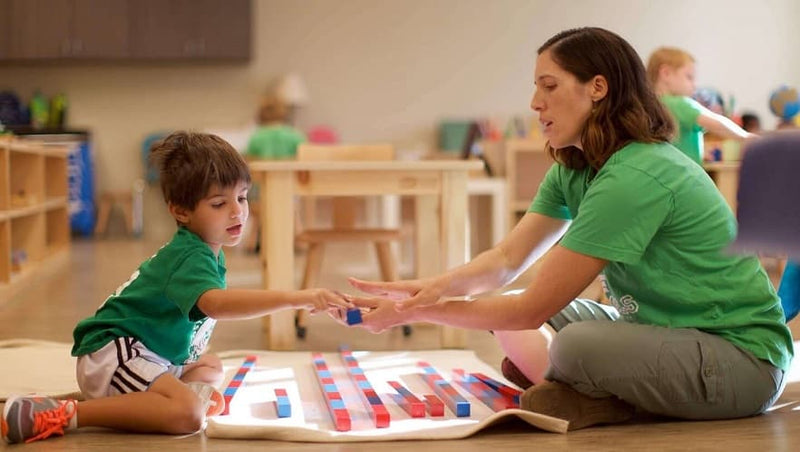Important women in early childhood education and care

Shaping early education with responsibility: Women as pioneers of holistic development support
The importance of early childhood development from the age of three onwards cannot be overstated. During this formative period, crucial foundations for motor, social, and cognitive skills are laid – competencies that form the foundation for self-determined, lifelong learning. Women in particular – whether as mothers, kindergarten teachers, or educators – have historically played a central role in shaping children's developmental spaces. One of the most influential figures in this field is Maria Montessori.
The influence of Montessori pedagogy
Maria Montessori, an Italian physician and educational reformer, recognized early on the importance of an environment that enables children to act independently. Her methodology is based on the belief that children learn best through targeted, self-selected movement and independent activity – for example, through the use of climbing walls or balance boards, which specifically promote balance, coordination, and body awareness.
Montessori pedagogy focuses on clear principles:
-
Independence : Children should act independently through adapted movement elements and overcome challenges on their own.
-
Freedom within structures : The ability to perform activities at one’s own pace strengthens self-confidence and intrinsic motivation.
-
Sensory learning : Through targeted movement and tactile stimuli – as made possible by gymnastic equipment according to EN 913 – sensory perception and motor skills are trained.
-
Prepared environment : Structured exercise rooms with age-appropriate equipment create safe conditions for active learning.
-
Respect for the child : Each child is viewed as an individual and their individual development is taken seriously.

Movement as part of educational work
Physical activity is far more than a balance to learning—it's an integral part of it. Whether through modular climbing walls, trapezes, or balancing equipment, children from the age of three benefit holistically from equipment that encourages their own activity. Especially in movement landscapes based on the Montessori principle, it's easy to observe how children develop self-confidence, concentration, and social skills through self-directed movement.
Educators as drivers of change
Women like Maria Montessori not only established new educational approaches but also initiated structural changes in early childhood education. They recognized and actively implemented the importance of child-friendly learning spaces—a requirement that is more relevant today than ever.
This pedagogical approach is carried on today by many professionals in kindergartens, schools and therapeutic facilities who respond to the needs of children with targeted exercise programs – always with a focus on safety, individuality and holistic learning.
Development as a social task
Given the growing demands of a dynamic society, it is crucial to provide children with early opportunities for movement, development, and self-organization. Investing in high-quality, EN 913-compliant exercise equipment—such as that used at Rinagym—is therefore not only a decision for safe play, but also for promoting sustainable development.

Conclusion
Maria Montessori's pedagogy impressively demonstrates how physical activity, independence, and a well-designed environment form the foundation of healthy child development from the age of three. Anyone who wants to help shape the educational landscape of tomorrow must invest today in safe, creative, and supportive movement concepts – always with the child at the center.






